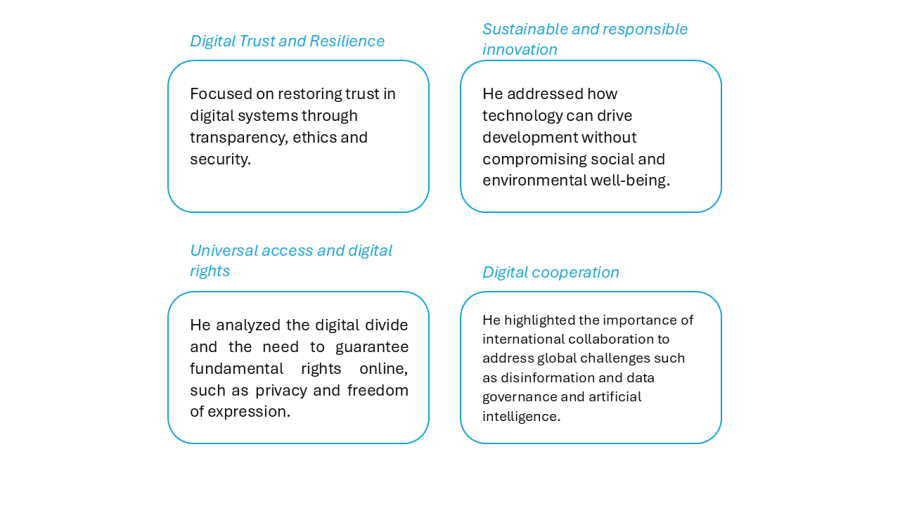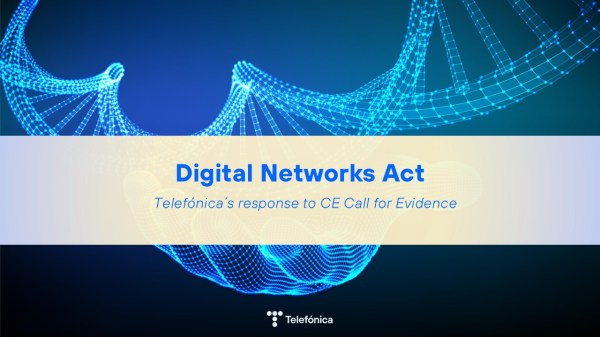The Internet Governance Forum (IGF) 2025, held from 23-27 June in Lillestrøm, Norway, marked the 20th anniversary of this global event organised by the United Nations. The IGF is a global multi-stakeholder platform that facilitates the discussion of Internet-related public policy issues. With the theme “Building Digital Governance Together“, the forum brought together more than 8,000 participants from governments, the private sector, civil society, academia and experts from around the world. The event served to underline the importance of having an open and democratic multi-stakeholder dialogue space to discuss the future of the Internet and to raise all issues affecting the digital ecosystem.
Context and relevance of the IGF 2025
This IGF 2025 was held at a key moment for global digital governance. After two decades of evolution, the forum took place in a context of ongoing international processes such as WSIS+20 and the Global Digital Compact, which seek to strengthen the commitment to an inclusive, safe and secure internet that respects human rights. These processes, together with the eventual review of the IGF, should determine the architecture of global digital governance in the coming years.
As such, particular emphasis was placed on supporting under-represented groups and adapting methods of participation to today’s complex digital landscape. Many stressed the importance of maintaining an open, inclusive and flexible IGF, warning against centralised or politicised alternatives. Concrete recommendations included, for example, the need to establish an Implementation Plan linking the WSIS Action Lines to the GDC and SDGs as well as better coordination and funding.
The impact of technological advances on public policies
With the participation of ministers, relevant companies in the digital ecosystem, experts, academics and representatives of international organisations, in addition to the central theme of the event, global digital governance, the more than 100 sessions, workshops and round tables also addressed other topics of interest and topicality in the digital ecosystem, which were discussed in depth.

In general, participants agreed on the desirability of anchoring the current review in the original WSIS vision focused on the development of digitisation and full digital inclusion. At the same time, the need to reflect current trends such as artificial intelligence, the expansion of digital infrastructure and broader digital transformation was recognised. While there are diverging views on the mechanisms needed to achieve this common vision, there was a general consensus on the need to avoid duplication of functions and ensure coherence between the fora. In any case, an evolution from internet governance towards broader and more inclusive digital governance was discernible.
This edition highlighted the role that national and regional IGFs have played over the last twenty years in building a multi-stakeholder process. In all contributions, a clear message emerged: the multistakeholder model remains vital for building inclusive, representative and forward-looking digital governance.
Conclusions and future prospects for global digital governance
The IGF 2025 not only celebrated two decades of progress in digital governance but also set the course for the challenges ahead in the digital age. As UN Secretary-General António Guterres pointed out, there are currently two processes underway within the UN – in New York, negotiations are underway to establish the International Independent Scientific Panel on Artificial Intelligence and a Global Dialogue on AI Governance. In Geneva, a new multi-stakeholder Working Group is promoting principles on data governance and sustainable development.
Two decades ago, the idea of digital cooperation was a bold aspiration. Today, it is an absolute necessity – and a shared responsibility
For years, the IGF has shown how dialogue across sectors, regions and generations can help shape an internet based on dignity, opportunity and human rights. Looking ahead to WSIS+20 in December 2025, the IGF 2025 reaffirmed its role as a key platform for international digital policy cooperation. Collaboration between governments, private sector, civil society and technical communities will be essential to address global challenges such as disinformation, data privacy and the regulation of artificial intelligence.
In short, the IGF 2025 in Oslo not only celebrated an anniversary, but renewed the global commitment to an open, safe and secure internet that respects human rights. The forum demonstrated that effective digital governance requires the active participation and engagement of all stakeholders, working together to build an inclusive and sustainable digital future. Two messages stood out in particular: The Global Digital Compact and the Pact for the Future are the foundations on which to build the global digital governance architecture. And, the IGF is the leading multi-stakeholder platform for shaping digital public policy around the world.












